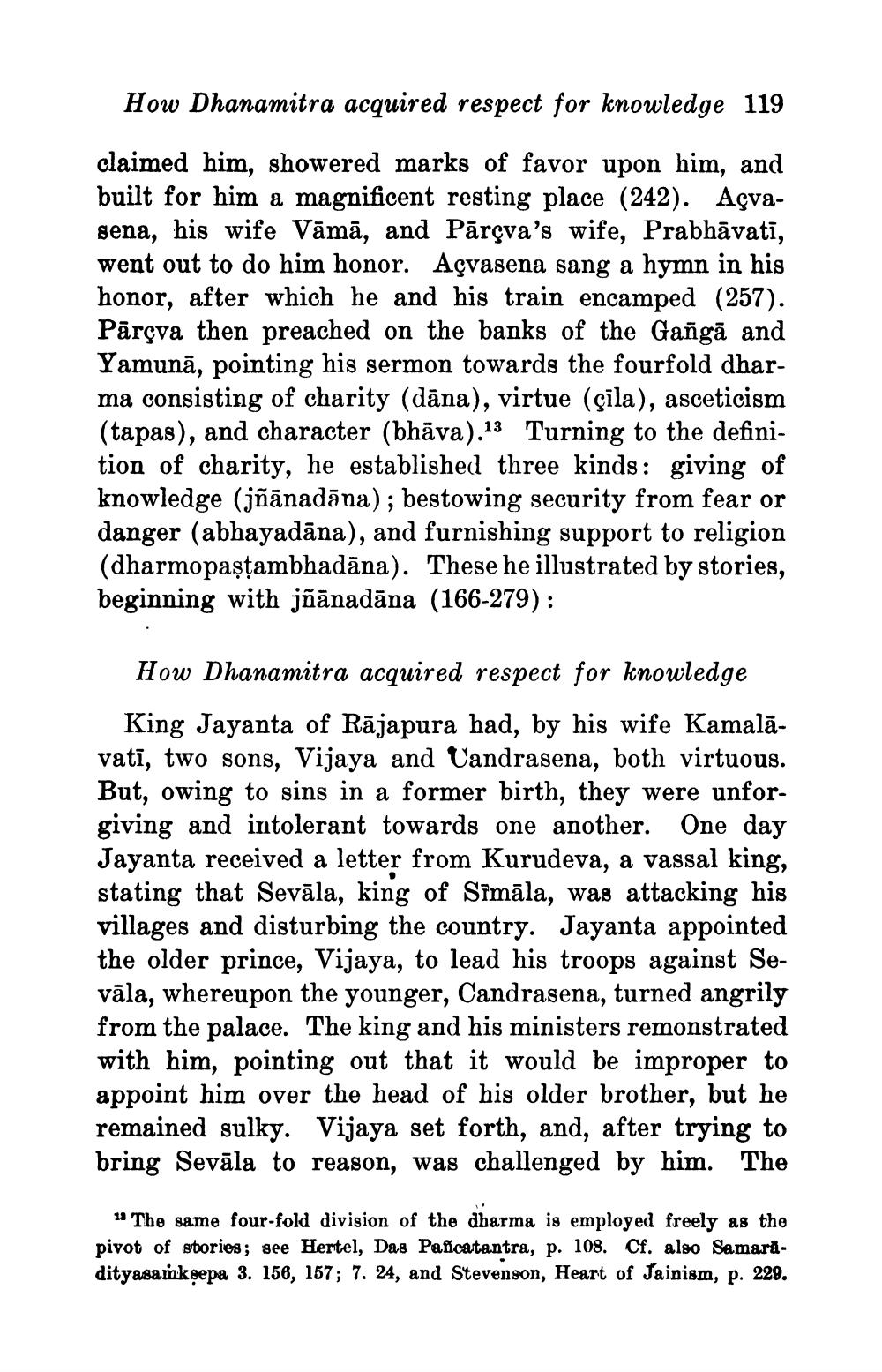________________
How Dhanamitra acquired respect for knowledge 119
claimed him, showered marks of favor upon him, and built for him a magnificent resting place (242). Açvasena, his wife Vāmā, and Pārçva's wife, Prabhāvati, went out to do him honor. Açvasena sang a hymn in his honor, after which he and his train encamped (257). Pārçva then preached on the banks of the Gañgā and Yamuna, pointing his sermon towards the fourfold dharma consisting of charity (dāna), virtue (çila), asceticism (tapas), and character (bhāva).13 Turning to the definition of charity, he established three kinds: giving of knowledge (jñānadāna); bestowing security from fear or danger (abhayadāna), and furnishing support to religion (dharmopaṣṭambhadāna). These he illustrated by stories, beginning with jñānadāna (166-279):
How Dhanamitra acquired respect for knowledge
King Jayanta of Rajapura had, by his wife Kamalavati, two sons, Vijaya and Candrasena, both virtuous. But, owing to sins in a former birth, they were unforgiving and intolerant towards one another. One day Jayanta received a letter from Kurudeva, a vassal king, stating that Sevāla, king of Simāla, was attacking his villages and disturbing the country. Jayanta appointed the older prince, Vijaya, to lead his troops against Sevāla, whereupon the younger, Candrasena, turned angrily from the palace. The king and his ministers remonstrated with him, pointing out that it would be improper to appoint him over the head of his older brother, but he remained sulky. Vijaya set forth, and, after trying to bring Sevāla to reason, was challenged by him. The
"The same four-fold division of the dharma is employed freely as the pivot of stories; see Hertel, Das Pañcatantra, p. 108. Cf. also Samaradityasamkṣepa 3. 156, 157; 7. 24, and Stevenson, Heart of Jainism, p. 229.




